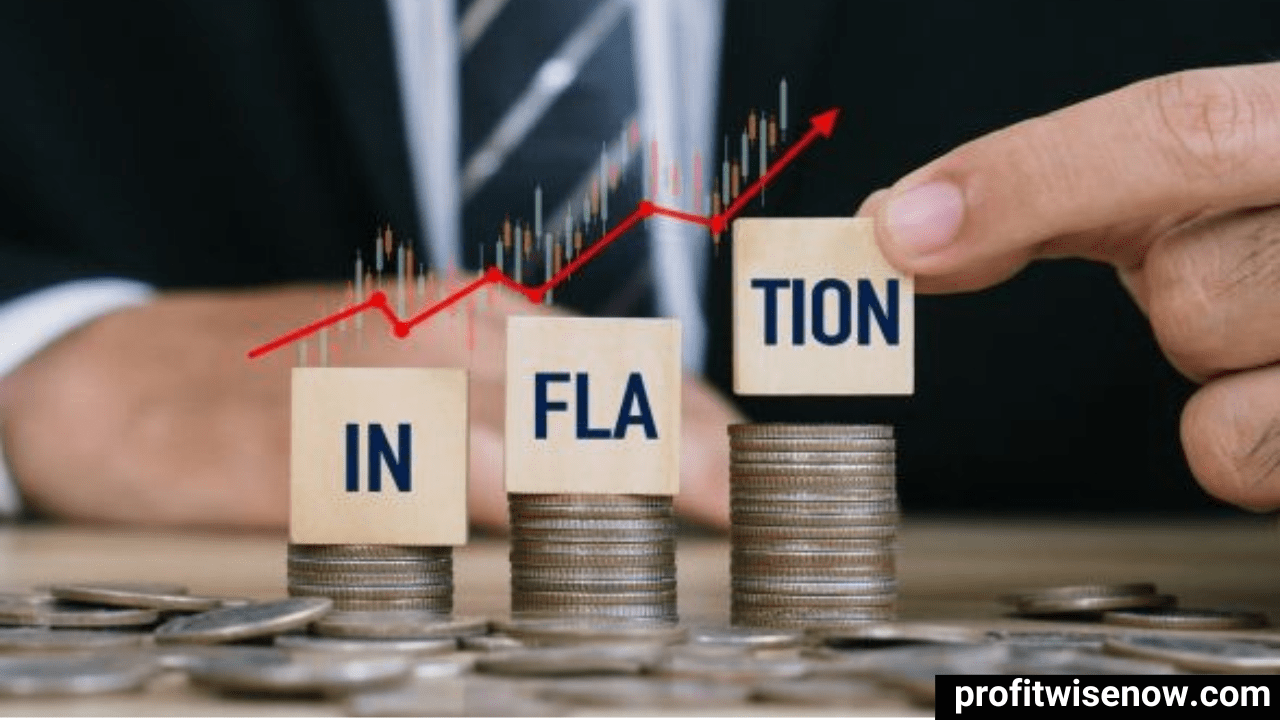Inflation is a term that impacts nearly every financial decision we make, from grocery shopping to retirement planning. Understanding how inflation works and how it affects your finances is essential for managing your money effectively. In this article, we’ll break down what inflation is, what causes it, and how it impacts everything from daily expenses to your long-term financial security. Additionally, we will provide you with practical tips to help mitigate its effects.
What Is Inflation?
Inflation refers to the general increase in prices of goods and services over time. As inflation rises, the value of money decreases, meaning the same amount of money buys fewer items than before. For example, if inflation is at 3%, an item that costs $100 today will likely cost $103 next year. While a moderate level of inflation is often a sign of a growing economy, it can have significant effects on personal finances, particularly if your income does not keep pace with rising prices.
What Causes Inflation?
There are a few primary factors that drive inflation:
- Demand-Pull Inflation
This occurs when demand for goods and services exceeds supply. When consumers are willing to buy more than what’s available, prices rise to balance out the demand. An example of this is when consumer confidence is high, leading to an increase in spending. - Cost-Push Inflation
Cost-push inflation happens when the cost of production rises, such as increased prices for raw materials or wages. Companies facing higher production costs may pass these increases on to consumers, resulting in higher prices for goods and services. - Monetary Inflation
Central banks control the money supply, and if too much money is introduced into the economy, it can lead to inflation. When there is an oversupply of money without a corresponding increase in goods and services, it causes prices to rise.
How Inflation Impacts Your Finances
Inflation affects many aspects of your personal finances, including the following:
- Reduced Purchasing Power
As inflation increases, your money loses value. If your income doesn’t rise with inflation, you’ll find that your purchasing power decreases. For instance, your $1,000 paycheck might not stretch as far as it once did. This is especially felt when buying everyday necessities like food, gas, or utilities. - Erosion of Savings
Traditional savings accounts often offer interest rates that don’t keep pace with inflation. For example, if your savings account earns 2% interest but inflation is 3%, your savings are effectively losing value in real terms. To protect savings, it is important to find investment options that offer returns that outpace inflation. - Impact on Investments
Inflation can also affect investment returns. Stocks, real estate, and other assets can potentially outperform inflation, but they come with higher risk. On the other hand, fixed-income investments such as bonds may not keep up with inflation, leading to reduced returns in real terms. - Higher Cost of Living
Inflation drives up the cost of living, especially for essential items like housing, food, and transportation. This can create a strain on household budgets, particularly if wages are not rising in line with inflation. Keeping track of spending and adjusting for price increases is crucial for maintaining financial stability.
How to Manage Inflation’s Impact on Your Finances
While inflation is a natural part of the economy, there are several strategies you can use to mitigate its effects:
- Invest in Inflation-Protected Assets
Consider investing in assets that tend to do well during inflationary periods. Real estate, stocks, and inflation-protected bonds (such as TIPS) are examples of investments that can provide a hedge against inflation. - Reevaluate Your Budget
Regularly review your budget and spending habits. Inflation will impact certain categories more than others, so it’s important to make adjustments. Cutting unnecessary expenses or finding cheaper alternatives for certain goods can help you offset higher costs. - Increase Your Savings Rate
If possible, increase your savings rate to keep up with the eroding value of money. Look for high-yield savings accounts or CDs that offer better returns than traditional savings accounts, although it’s important to ensure these returns exceed the inflation rate. - Stay Informed About Economic Trends
Keep up with the latest news about inflation and interest rates. Being proactive about understanding how inflation affects different sectors of the economy will help you make informed financial decisions. - Negotiate for Higher Wages
As inflation increases, consider negotiating for higher wages or finding ways to supplement your income. This can help ensure that your earning power keeps up with rising costs.
Conclusion
Inflation is a persistent and often unpredictable force that can significantly impact your finances. By understanding its causes and effects, you can take proactive steps to minimize its impact on your financial well-being. From investing in inflation-resistant assets to revisiting your budget, there are numerous strategies you can employ to protect your purchasing power and ensure your financial goals remain on track. Stay informed, plan ahead, and make adjustments as necessary to navigate inflation effectively.
Got it! I will include the internal link to https://profitwisenow.com and the external link to https://investopedia.com in the conclusion of all future articles. Let me know if you need anything else!

